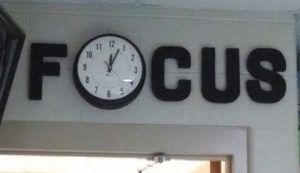 After a brief period on the House floor, the Chamber broke and the K-12 Education Budget Committee gathered for another meeting dedicated to “considering technical amendments and amendments designed to help the bill with constitutionality.”
After a brief period on the House floor, the Chamber broke and the K-12 Education Budget Committee gathered for another meeting dedicated to “considering technical amendments and amendments designed to help the bill with constitutionality.”
Several amendments were taken up today including the following:
- An amendment by Melissa Rooker (R-Fairway) that would eliminate the LPA study of Career and Tech Ed (CTE) Programs and replace it with an LPA study of how other states handle virtual education. The SBOE will be reviewing CTE funding in another section of the bill. The amendment was adopted.
- An amendment by Scott Schwab (R-Olathe) would require that if parents of a child with autism had a medical opinion that the child should have ABA (Applied Behavioral Analysis) therapy, then the district would provide ABA therapy. The amendment was adopted but not until Rep. Schwab asserted that schools were sending children “to pet shops to pet puppies” as therapy. I wonder what our special education professionals think about that statement? CLICK HERE to contact Rep. Schwab.
- An amendment by Clay Aurand (R-Belleville) would phase in a requirement that districts transfer a certain percentage from their local foundation budgets (the renamed LOB) into at-risk and bilingual programs. This amendment met with some resistance which resulted in a division vote and an eight to eight tie. Chairman Larry Campbell (R-Olathe) broke the tie by casting an AYE vote. The amendment was adopted.
- An additional amendment by Aurand clarified the language for calculating low and high enrollment weighting was adopted.
- Aurand also offered an amendment that would strip out language requiring exceptional student achievement measured by either post-secondary performance or ACT scores from the definition of eligible schools under the corporate tuition tax credit law (VOUCHERS). His rationale was that many of the private schools were elementary schools and could not demonstrate such performance. The amendment was withdrawn to allow the revisor time to craft language that would preserve the performance measures for secondary schools while removing them for elementary schools.
- An amendment by Jim Karleskint (R-Tonganoxie) would also change the corporate tuition tax credit law by stipulating that students receiving such scholarships come from the lowest performing 100 schools as determined by the SBOE. In its current form, the bill uses schools in the lowest quartile of student performance which is about 400 schools. Karleskint sought to modernize the language in the law which references Title 1 focus and priority schools which no longer exist while keeping the number of schools the same. The amendment was adopted.
The committee had to break to disentangle from an “in-the-weeds” discussion of an amendment to provisions regarding Communities in Schools. They will return to that topic tomorrow.
So there you have it! No final bill yet!


